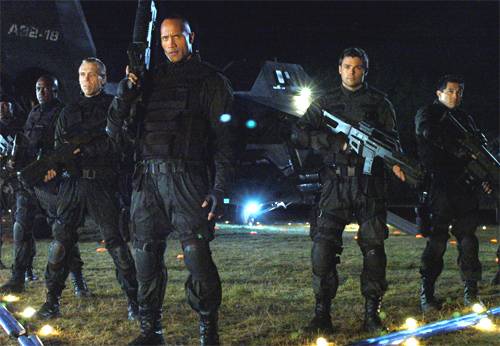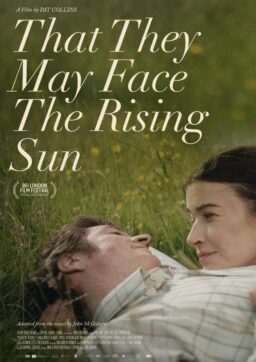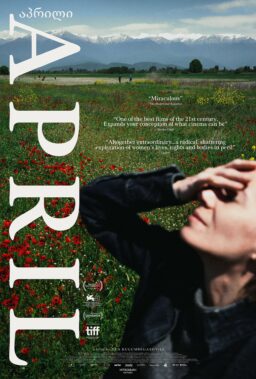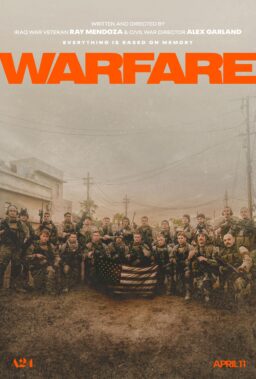Q. If “Doom” were just another action thriller, then I would have to say you were too generous by giving it one star. The movie frankly deserves zero stars. But is not just a movie. “Doom” was to games what “Rashomon” was to movies. It invented a way of showing something that had never been done before — what you call the “point-of-view shot looking forward over the barrel of a large weapon.”
“Doom” the movie is a tribute to this seminal event. This movie isn’t about clever camera angles, witty dialogue or subtle directorial touches. “Doom” has no pretensions, aspirations or delusions about what it is about. You aren’t supposed to wonder about the origins of mankind as you walk out of the theater. “Doom” the movie is “Doom” the game brought to the screen without messing around too much with the original. “Doom” works as a tribute because it fails so utterly as a movie. There is a reason so many video game-based movies suck: They are fundamentally different forms of representation. Thus by being faithful to the game, the movie pisses off the critic and pleases the gamer.
Vikram Keskar, Kirksville, Mo.
A. With friends like you, what does “Doom” need with critics? Surveys indeed show that more than half the movie’s opening-weekend viewers had played the game. I suppose they got what they were expecting. I am a believer in the value-added concept of filmmaking, in which a movie supplies something that a video game does not. Seen as a moviegoing experience, this was not a good one. There are specialist sites on the Web devoted to video games, and they review movies on their terms. I review them on mine. As long as there is a great movie unseen or a great book unread, I will continue to be unable to find the time to play video games.
Q. I was so excited to see that “Wallace & Gromit: The Curse of the Were-Rabbit” was rated G and that you gave it a good review, so I took my 4-year-old to see it. I was blown away that a G movie would have so much sexual innuendo, curse words and even some nudity. Did we see the same film? I am e-mailing everyone I know who has small children that this movie is clearly wrongly rated. Please be aware that you have a responsibility to acknowledge those facts when critiquing a film for the American public.
Hope Otto, Houston
A. The most reliable and accurate source I know for parents who want detailed information on movies is screenit.com. In its discussion of “Wallace & Gromit,” the site terms the nudity in the movie “moderate” and the profanity “minor.” It summarizes: “WILL KIDS WANT TO SEE IT? Yes, especially younger ones. WHY THE MPAA RATED IT G: For not containing material to warrant a higher rating.”
Q. In your review of “Good Night, and Good Luck,” the new George Clooney movie about Edward R. Murrow, you said about Sen McCarthy: “He destroys others with lies, and then is himself destroyed by the truth.” The only problem is that McCarthy wasn’t lying. He might have gotten a few of the details wrong, but he was substantially correct.
The Venona Project was a top-secret U.S. government effort to decode Soviet messages which ran from 1943 until 1980. Untold thousands of diplomatic messages were decrypted, providing invaluable intelligence. Some of that intelligence proved that there were, indeed, spies imbedded in the U.S. government in far greater numbers than the public suspected. Many of the people that McCarthy singled out as being spies actually were working for Russia, traitors that were selling out their country to the most murderous regime the world has ever seen.
The threat was very real, and Murrow did the free world no favors with helping to bring McCarthy down. The film has no mention of Venona, no mention of Soviet spies that certainly did exist, no nuance and no truth. Instead we’re treated to a rehashing of the same old debunked story about how journalists managed to bring down a greater threat to freedom than Stalin. What is beyond my comprehension is how most of the people who know and care about the Red scare of the 1950s are completely unaware of Venona. Many of the decoded documents have been available to the public for more than a decade.
James R. Rummel, Columbus, Ohio
A. If McCarthy had that information, why didn’t he cite it to save himself? Obviously, because it was not available until years after his death. Evidence at the Army-McCarthy hearings and elsewhere indicated that he fabricated most of his charges out of thin air. Do you have any sympathy for the majority of his targets who were completely innocent? What about the blacklist that ended careers and destroyed lives because innocent people exercised their constitutional privileges?
It is significant that government security officials in possession of facts about spies did not choose to share them with McCarthy, who was a loose cannon. Presumably the security experts were taking care of business while McCarthy was disgracing himself. Edward R. Murrow is the public servant in this scenario.
Q. Your review of “Domino” asks why they remove the man’s arm for the combination tattooed on it, when it would be easier to just copy down the number. The movie makes it clear that the arm was removed by mistake because of a misunderstood cell phone call. Domino was told to remove the sleeve of the shirt to read the combo but the cell call was breaking up, so there was the disastrous consequence. I am surprised you missed this moment.
Sandy Struth, Los Angeles
A. I am not surprised. I enjoyed the movie’s hyperkinetic structure, but the movie is told so breathlessly and in such a fractured style that Tony Scott could have hidden “Doom” in there somewhere, and I might have missed it.
Q. Mariah’s Storm did not win the Breeders’ Cup, as you say in your review of “Dreamer,” but actually finished ninth. Quite a difference.
Joseph Smith, Forest Hills, N.Y.
A. “Dreamer” is inspired by the true story of Mariah’s Storm, one of the rare horses that was not put down after a broken bone, but was treated, recovered, and raced again. I consulted the great horse writer William Nack, author of the biography of Secretariat, for an expert answer. He replies:
“The letter is accurate but slightly misleading to the layperson who does not know the sport. Mariah’s Storm finished ninth in the Breeders’ Cup Distaff run at Belmont Park on Oct. 28, 1995. There is a Breeders’ Cup day every year in which all the best horses in the world gather at one U.S. track and run in a bunch of races to decide who is the best in various divisions: sprint, turf, mile, male 2-year-old, female 2-year-old, etc.
“Mariah’s Storm competed in the $1 million Breeders’ Cup Distaff, a race confined to female thoroughbreds age 3 and older. She was 4 that year. It’s the championship event of the year for females older than 2.
“In the lead-up to the Breeders’ Cup, there are many events run around the country that have the tag Breeders’ Cup attached to them. These are races that are related to the main event but are not part of it. So Turfway Park in northern Kentucky ran the Turfway Breeders’ Cup race for females that year, and, yes, she won that and beat the champion Serena’s Song. But then she finished ninth in the big one, at Belmont Park. Of course, then Mariah’s Song went on to stud duty and became the mother of Giants Causeway, a wonderful racehorse who is proving himself to be a great stallion. So Mariah’s Song’s genetic influence has become powerful in the sport. She was a beautifully bred horse herself and a superior runner in her own right.”
Ebert again: I have added the crucial word “Turfway” to my review online.












